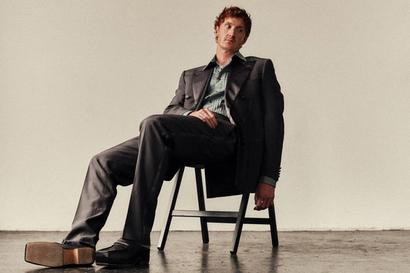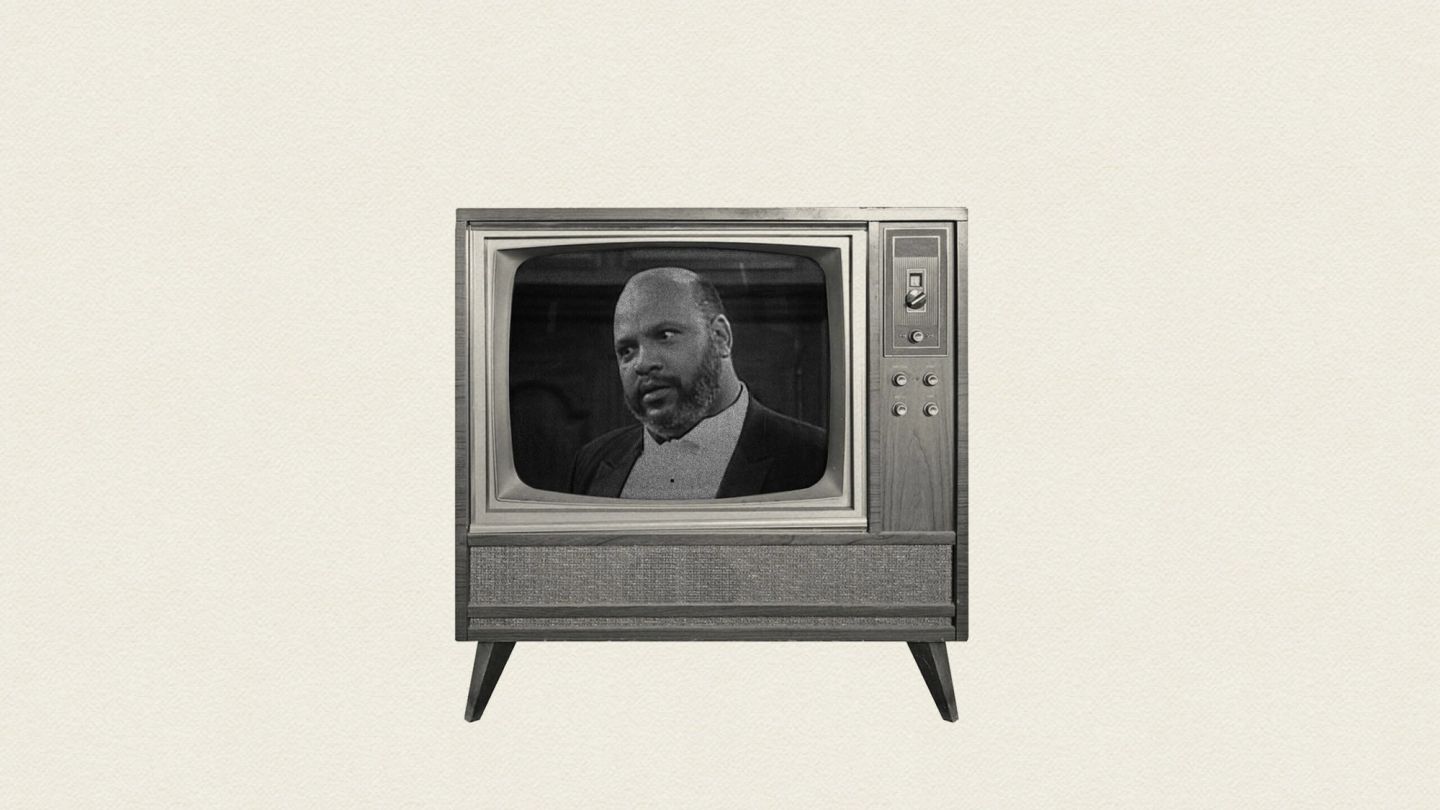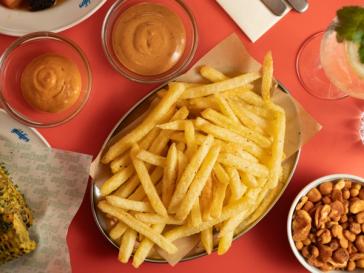

Words: Mike Rampton
Fatherhood is one of the most complex, challenging jobs a gentleman can have – it’s hideously paid, the hours are abysmal and it’s very difficult to take a sabbatical from, yet it’s also incredibly rewarding, albeit in a hard-to-define, vaguely spiritual way. Every day as a father is harder than every day as a non-father, and yet few dads would change it for the world.
Given the magnitude and difficulty of the job, it makes sense to look for guidance anywhere one can, and pop culture is a perfect starting point. Fatherhood is as much about what not to do as it is about what ideas to embrace, and we can learn as much from terrible big- and small-screen dads as we can from great ones.
Let’s take a look at some of the big daddies of pop culture and see what lessons we can take from their occasionally questionable actions.
Hawkeye (The Avengers)
The only dad in the Avengers, and arguably its hardest-working member due to his total lack of special powers. Clint Barton works away from home a lot, but seems to make the time he has at home count.
There’s something suspicious going on though. A fan of burning the flaming arrow at both ends, it was three whole films before he told anyone he had children. Now, while nobody likes a colleague that won’t stop going on about their wife and kids, completely failing to mention it to people you’re in life-or-death situations with seems a bit dodgy. Might he have brought it up earlier if the team he was on didn’t include Scarlett Johansson? Possibly. You shady dog, Barton. This year, he sat Infinity War out, supposedly under house arrest – let’s hope he took that opportunity to spend real quality time with his family.
Batman
Over the years Batman has been an excellent father figure to various versions of Robin and Batgirl, while conversely being an absolutely terrible actual father to his biological son Damian. That’s not really allowed. You can’t go “My kid’s bonkers, I want the cool one”.
While he had a few hiccups – Jason Todd, the second Robin, was brutally murdered by the Joker, for instance – he generally did a fine job on the surrogate father front. And, given that Damian’s mother Talia had him raised in a laboratory and trained by the League of Assassins since birth, hiding his existence from Batman, the Caped Crusader can’t really shoulder too much of the blame for him being a bit of a (slightly homicidal) weirdo.
Ned Stark (Game Of Thrones)
Considering the cod-medieval setting of Game Of thrones, Ned Stark is a surprisingly progressive thinker. He lets his kids be who they are, making unorthodox decisions like arranging sword-fighting lessons for his boisterous tomboy daughter Arya rather than forcing her into following the rules of what is expected from a lady.
He also teaches his children about taking responsibility for their actions, although the way he does this – beheading an unfortunate chap who it turns out is telling the truth – perhaps could do with some work. He even extends his paternal instincts to the rest of his family, claiming his nephew as his illegitimate son in order to protect him, regardless of how many years of arguments that must have caused with his wife.
Homer Simpson (The Simpsons)
There have been many different Homer Simpsons over the thirty years he’s been on television, but two things have remained consistent – a great, deep inner love for his family with a loud, aggressive, gruff exterior on it.
The sixth-season episode And Maggie Makes Three (otherwise known as the “Do It For Her” episode) is one that will bring a tear to the eye of any dad, a brutal acknowledgement of the often sidelined fact that being a good father sometimes involves not being there as much as you’d like to be. The flip side to this, of course, is Homer’s love of throttling his firstborn, something that should not be done under any circumstances. Loving your children, good. Strangling them, bad.
Mr Banks (Mary Poppins)
A fine figure of an old-fashioned man, sporting moustache, bowler hat and umbrella as well as a hell of a set of pipes, Mr Banks is also an excellent father – by the end of the film, anyway.
At the beginning he leaves a lot to be desired, viewing his kids as little more than a hindrance, as absent from their lives while he’s in the same room as them as when he’s out at work. But, thanks to a convenient flying nanny, he opens his mind to learn from his children, is willing to let fatherhood change him, and by the time he’s flying a kite with his kids as the end credits roll, has both discovered a work-life balance and got himself a promotion. Legend.
Jack Torrance (The Shining)
“All work and no play makes Jack a dull boy” is the mantra Torrance typed endlessly as he slipped into a fugue of violent insanity, but he could have gone a bit further and added “and rubbish dad” on the end.
He breaks his son’s arm in a drunken rage, drags his family to a remote hotel for the winter, spends all his time getting drunk with ghosts then becomes a big ‘orrible murderer. Axe-wielding maniacs have plenty of admirable qualities (passion, determination, a lack of inhibition), but responsible parenting isn’t one of them.
Anakin Skywalker (Star Wars)
A useful piece of equipment for any father would be a bracelet that said WWASD on it, for What Would Anakin Skywalker Do? Essentially, one of the keys to fatherhood is doing the binary opposite of him at every given point.
He becomes a father in the most heartbreaking way possible, with his wife dying in childbirth, but you can’t hold your children responsible for things that aren’t their fault. If considering cutting your son’s hand off during a duel on a very high bridge, for instance, think to yourself “Well, this is exactly what Anakin Skywalker would do – I think instead I’ll give the boy a hug, have a lovely chat and go for a nice day at the seaside”.
Dr Evil (Austin Powers)
Dr Evil deserves some credit for trying to improve himself and acknowledging his mistakes – after struggling to bond with his son Scott he tries a lot harder with his clone Mini-Me. However, playing clear favourites is a pretty poor move, as is allowing/encouraging one of your children/clones to kill the other.
Look, children aren’t that bright, and sometimes they have dreams and goals that don’t line up with what their parents want for them. If you’re a megalomaniacal supervillain and your child wants to be a vet, you’re naturally going to be disappointed. But crushing their dreams or insisting they become an evil vet isn’t going to help anyone.
Uncle Phil (The Fresh Prince of Bel-Air)
Uncle Phil seems like a perfectly fine father to his own children, Hilary, Carlton and Ashley, but it’s his relationship with his nephew Will that really shines – proof fatherhood isn’t about genetics as much as it is a state of mind.
Their relationship might often seem antagonistic, with its foundation of a strict disciplinarian versus a free-thinking anti-authoritarian, but that antagonism comes from a place of love and respect. In one famous episode of The Fresh Prince that would lead even the manliest gentleman on Earth to have a get a bit of the sniffles, Will’s father walks out on him yet again, and it’s Uncle Phil who’s there with the most necessary hug of his life.
Peter McCallister (Home Alone)
There are as many parenting techniques as there are families, but one of the things pretty much every parent agrees on is that knowing at least vaguely where your offspring are is a good thing.
That’s where Kevin’s dad from Home Alone dropped the ball. He was doing alright until then – seemed like a good chap, had instilled a good sense of discipline into his family and everything, but oof, Peter, when it came to boarding the same plane as all of your family, you had one job, mate.
Sandy Cohen (The O.C.)
The magnificent eyebrows of Sandy Cohen accompany more than just a sharp legal brain – they’re a hairy umlaut topping a heart of gold. Already a fine father to magnificent nerd Seth, he extends his commitment to doing the right thing further than most, bringing home troubled teen abandoned by his mother, determined to set the boy on the right track.
Selflessly opening his life and home to an initially ungrateful teen, Sandy is able to see through the surliness and bad attitude to the potential beneath, rather than changing his mind after ninety minutes and turfing him out.
(As for the whole “I adopted a quite bad kid at work today” thing – well, we’re not assessing how good a husband he is.)
Lincoln Hawk (Over The Top)
The Sylvester Stallone arm-wrestling trucker epic Over The Top isn’t as much of a go-to classic as some of the other films on this list, but it’s notable for featuring the worst parenting in cinematic history.
Stallone’s character reconnects with his estranged ten-year-old son and immediately commits a ram-raid, forces young Michael to drive a big-rig down a highway and before long has him stealing a truck, turning his back on his grandfather’s millions and generally leading a much worse life. The parenting section of Waterstones should just be lots of copies of Over The Top covered in stickers saying “NOT THIS, BLOODY HELL”.


